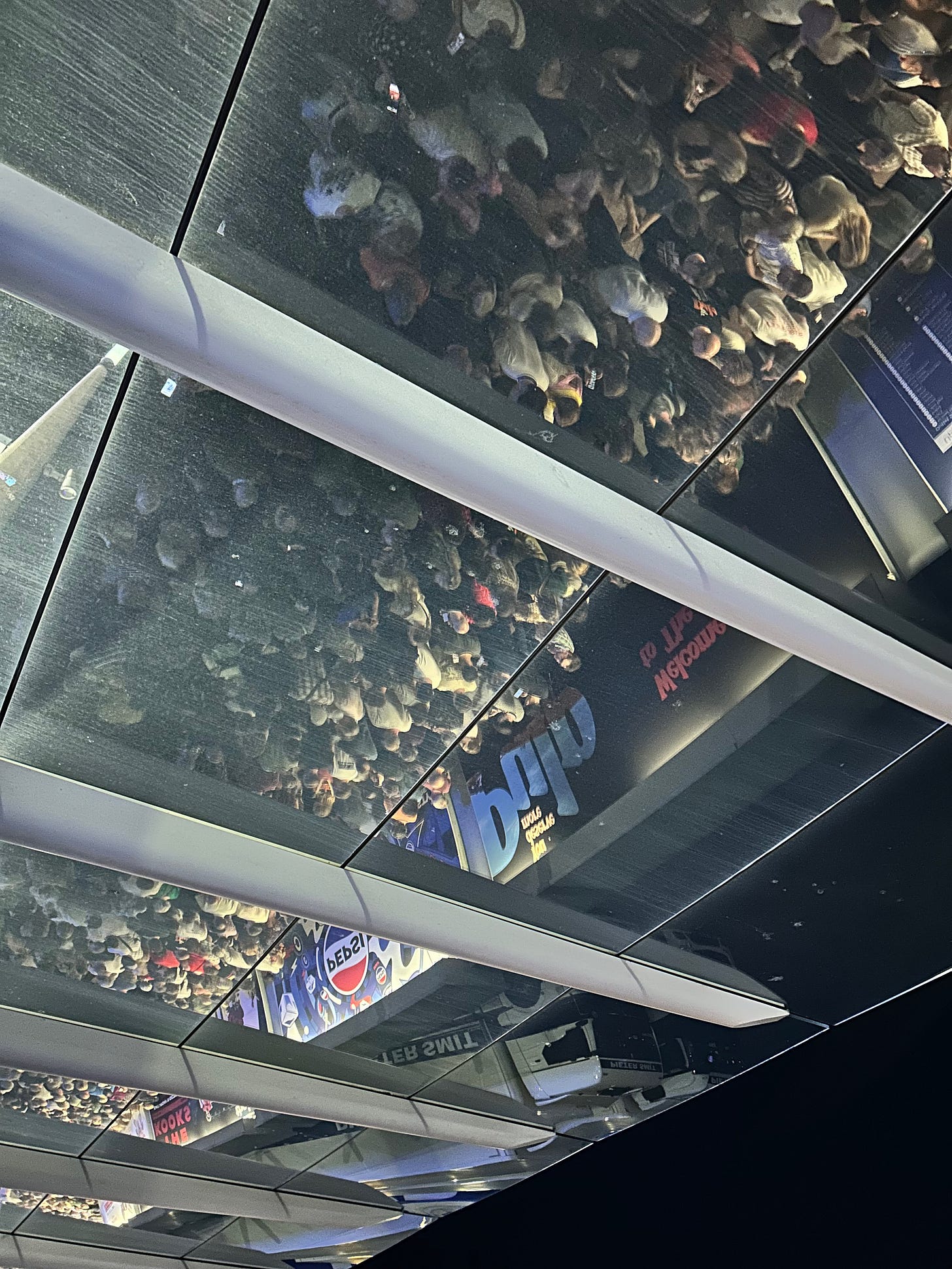Back in June, I saw Pulp perform for the third time in two years and a few things struck me. Firstly, it was the final night at the O2 in London and the atmosphere was electric - there was justified excitement around the new album and the promise of a varied, and long, two-act set - but it was also the first time, I realised, I’d seen them indoors. There’s nothing quite like a festival experience, but the sound quality in an indoor arena is spectacular. The stagecraft was exhilarating from start to finish, which would have been the case even if Jarvis had stood still all night, although the stage was made for his relentless movement. Everything pulsed and vibrated.
Secondly, unlike the other two times I saw Pulp, they had a solo violinist to play Russell Senior’s parts. For 14 years, that violin was the backbone of so many songs, particularly on Separations and His n Hers, but once Russell left the band it sort of got buried under extra layers of keyboard and guitar, rendering the live versions like different songs. It’s the violin that makes ‘OU (Gone, Gone)’, ‘Acrylic Afternoons’ and ‘Common People’ practically religious experiences. One wonders if, every time they plan a run of shows, they ask Russell to come back and he declines because he’s till committed to ending his time in Pulp on the mid-90s high, or perhaps the band has lost love him after his ludicrous book. Either way, I wish they’d take a leaf out of the Gallagher’s book and just get over it for the sake of the music. Seeing Pulp with Russell on violin - in that suite and those shades - is the Holy Grail.
Thirdly, although he’s in his 60s (they all are by now), Jarvis remains as nimble and as overflowing with vitality as he was when I first loved the band in the 90s, but more than that, the songs - the message of the songs, perhaps - haven’t aged at all. Maybe it’s an effect of where I happen to find myself at this stage of middle-age, but when I listen to Blur, Oasis and Suede, there’s the indelible spirit of the 90s - a fin de siecle hubris, a kind of hedonism mixed with the constant promise of a better life - that feels petrified in a moment in the 20th Century. It’s not that Britpop has aged badly for me, or that it feels irrelevant, or even that it doesn’t sound the same in some indefinable way, but it is that it feels like a product of time and as such it just brings back memories. Pulp, on the other hand, stand out because the songs - from ‘Mis-Shapes’ and ‘Common People’ all the way to ‘Do You Remember the First Time?’ and ‘Razzmatazz’ - feel as if they are speaking about now.
I guess I realised, seeing them for the third time, that Pulp’s 90s never ended. And it never ended because, as the lyric goes in ‘I Spy’, life continues to be, for so many of us, “a case of the haves and the haven’ts”.



